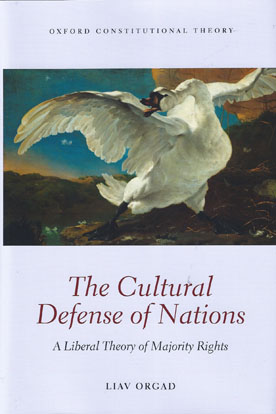
The cultural rights of minorities are frequently discussed in political and public forums: the socio-legal literature emphasises these rights and focuses on how they can be protected. This singular book deals, for the first time, with the cultural rights of the majority.
With more than 230 million immigrants worldwide, majority groups increasingly feel a need to protect their culture. Liberal theory and human rights law recognize the rights of minority groups to maintain their unique cultural identity, yet assume that majority groups have neither a need for a similar right nor a moral basis for defending them.
The Cultural Defense of Nations moves beyond these assumptions by asking two simple but important questions: is the cultural continuity of majority groups a legitimate purpose to restrict immigration; and is the immigrant's cultural background a legitimate criterion to restrict immigration? Changing patterns of contemporary immigration have motivated a new trend in liberal democracies: proactive immigration and naturalization policies designed to defend the culture of majority groups.
This trend is fed by fears of immigration - some justified, some paranoid - which explain the rise of extreme right-wing parties in the West.
The book reveals a troubling trend in liberal states, which, ironically, in order to protect liberalism, violate the very same values, and presents a liberal theory of cultural defense that distinguishes between justifiable and unjustifiable attempts of majority groups to protect their culture. It constructs liberal standards by which majority groups can welcome immigrants without fundamentally changing their cultural heritage, forsaking their liberal traditions, or gliding into extreme nationalism.
The Cultural Defense of Nations presents a timely, thought-provoking thesis in one of the greatest challenges facing liberalism today the cultural rights of majority groups.